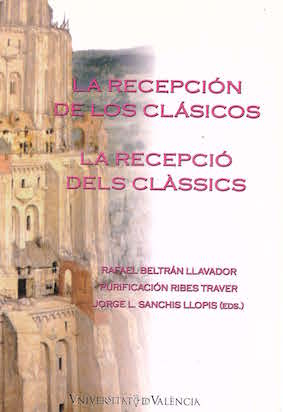Agüeros y jaulas con grillos en la recepción de una anécdota clásica: el tropiezo de Escipión o Julio César desde Tirant lo Blanc hasta Don Quijote
DOI:
https://doi.org/10.7203/qf-elit.v10i0.5101Paraules clau:
anècdota literària, Escipió, Juli Cèsar Resum
Resum
En alguns textos medievals i renaixentistes apareix una anècdota sobre Escipión (o Julio César), qui, en trepitjar terra enemiga, ensopega i cau, prenent-se la seva caiguda com a averany favorable. Aquest episodi ha estat interpretat a través de dues tradicions literàries principals, que vénen de Suetonio i Frontino. Aquest article examina com l'episodi va arribar a formar part d'aquestes tradicions, els seus usos ficticis (novelescos i cuentísticos), la seva definició retòrica en Baltasar Gracián i, finalment, la seva aparició en Tirant lo Blanc (cap. 301) i El Quixot (II, lxxiii).
 Descàrregues
Descàrregues
Descàrregues
Publicades
Com citar
-
Resum530
-
PDF (Español)200
Número
Secció
Llicència
 Este obra está bajo una licencia de Creative Commons Reconocimiento-NoComercial-SinObraDerivada 4.0 Internacional.
Este obra está bajo una licencia de Creative Commons Reconocimiento-NoComercial-SinObraDerivada 4.0 Internacional.
Tots els documents inclosos a OJS són d'accés lliure i propietat dels seus autors i/o institucions editores, i per tant, qualsevol acte de reproducció, comercialització, comunicació pública o transformació total o parcial necessita el consentiment exprés i escrit d'aquests.
________
Authors who publish with this journal agree to the following terms:
- Authors retain copyright and grant the journal right of first publication with the work simultaneously licensed under a Creative Commons Attribution License that allows others to share the work with an acknowledgement of the work's authorship and initial publication in this journal.
- Authors are able to enter into separate, additional contractual arrangements for the non-exclusive distribution of the journal's published version of the work (e.g., post it to an institutional repository or publish it in a book), with an acknowledgement of its initial publication in this journal.
- Authors are permitted and encouraged to post their work online (e.g., in institutional repositories or on their website) prior to and during the submission process, as it can lead to productive exchanges, as well as earlier and greater citation of published work (See The Effect of Open Access).



